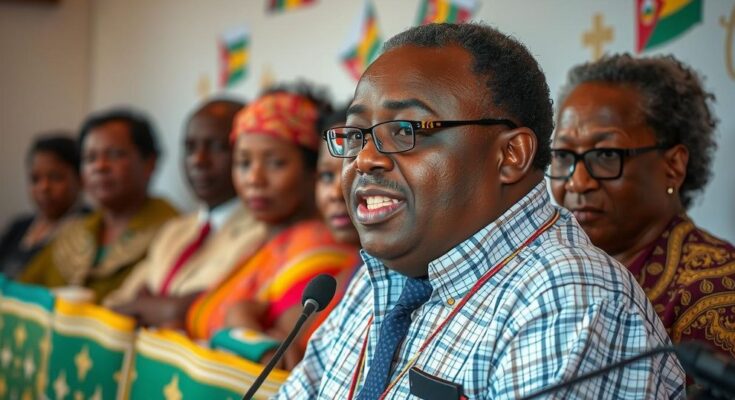Following Mozambique’s contentious presidential election, widespread violence and protests have erupted, leading to significant loss of life and displacement. The ruling party, Frelimo, faces allegations of electoral fraud, deepening societal tensions. Religious leaders from South Africa have expressed their concerns over the country’s stability and urged for coordinated efforts for dialogue and humanitarian relief in light of the escalating crisis.
Mozambique is currently grappling with severe challenges following the recent presidential election, during which the ruling party, Frelimo, secured its continued governance amid widespread allegations of electoral fraud. Political tension erupted into violence, resulting in over 130 fatalities as citizens protested against the government’s legitimacy. South African church leaders have expressed grave concerns regarding the impact of political unrest on Mozambique’s identity and societal stability, calling for urgent action to restore peace and ensure the well-being of those affected. Reports of looting, arson, and targeted violence against police have contributed to an atmosphere of fear and mistrust, forcing many to flee to neighboring countries. Leaders from the South African Council of Churches (SACC) and Christian Council of Mozambique (CCM) are advocating for national unity and engagement in dialogues while mobilizing resources to address the humanitarian crisis stemming from the post-election turmoil.
The political landscape in Mozambique has been dominated by the Frelimo party since its independence in 1975. The recent presidential election, held on October 9, has led to unrest as opposition parties, particularly Podemos, have contested the victory citing election fraud. Following the announcement of the results, civil society has witnessed violent clashes resulting in significant casualties and displacement of residents. The social and political instability has raised alarms from regional leaders, including church authorities, who emphasize the need for collaborative efforts to mitigate the crisis and prevent further regional impact.
The escalating violence and instability in Mozambique following the recent election have raised serious concerns among church leaders and civil society regarding the country’s future. With numerous fatalities and uprooted families seeking refuge in neighboring nations, the calls for urgent political dialogue and humanitarian assistance are more crucial than ever. The South African Council of Churches and other stakeholders are committed to fostering national unity and addressing the dire needs of the population amid this turmoil. As the country faces the risk of disintegration, the imperative for collective action remains urgent in restoring peace and stability.
Original Source: www.aciafrica.org




